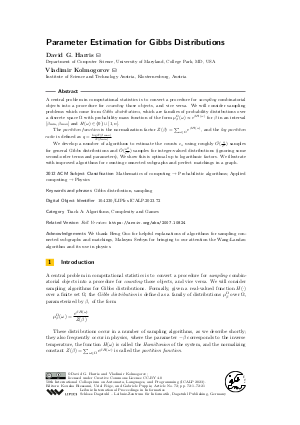LIPIcs.ICALP.2023.72.pdf
- Filesize: 0.87 MB
- 21 pages

 Creative Commons Attribution 4.0 International license
Creative Commons Attribution 4.0 International license





















Feedback for Dagstuhl Publishing